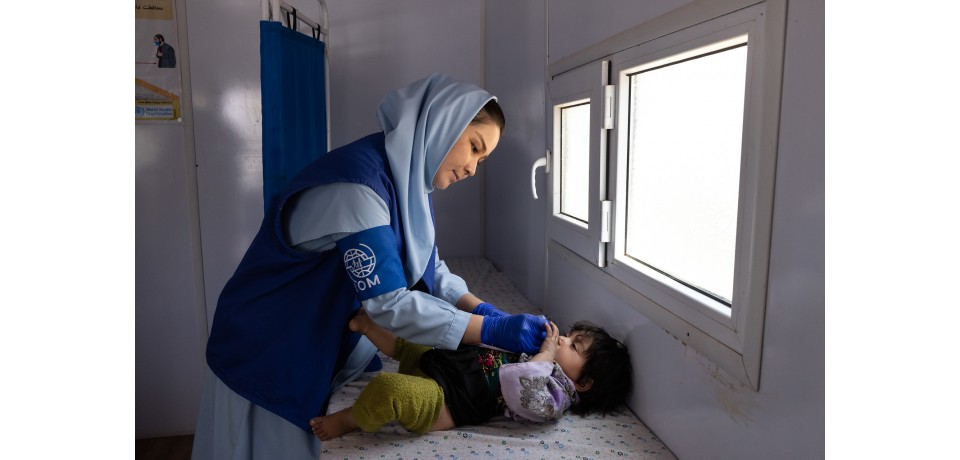IOM’s Health Assistance: A Lifeline for People in Afghanistan
Related Sustainable Development Goals and Global Compact for Migration Objectives
Kabul, 18 October 2021 – The International Organization for Migration (IOM) has been providing essential health services to people on the move and hard-to-reach populations in Afghanistan for three decades, and has stood on the front lines of the UN's COVID-19 response in the country, with presence currently across four border provinces: Herat, Nimroz, Kandahar and Nangarhar. Since the beginning of the year, almost half a million people have received essential health assistance from IOM. IOM’s health teams now are rapidly preparing to increase capacity and adapt support to fill urgent gaps to help ensure that the Afghan health-care system does not collapse in the medium term.
More than 40 years of conflict have shaped Afghanistan into a country with one of the lowest scores in the Human Development Index. Its population faces a life expectancy of only 50 years, and a high percentage suffers from severe health conditions. The country is burdened by the effects of environmental pollution and is one of only two in the world where polio remains endemic.
Conflict, natural disasters and the COVID-19 pandemic have forced nearly half of Afghanistan's 40 million people to seek urgent humanitarian assistance in 2021. This number has also been forecast to dramatically increase. Among other factors, a collapsing economy, difficulty obtaining health services, rising food insecurity, and shrinking access to safe drinking water dramatically increase the pressure on the population’s physical and mental health.
In 2021, the number of people with physical trauma increased by at least one third, 54 per cent of Afghans report limiting their meal sizes, and half of all children under five are expected to face acute malnutrition.
To support, IOM is working with Afghan provincial governments (e.g. villages) and national departments (e.g. Ministry of Public Health) to ensure immediate and long-term access to essential life-saving health services. This is in direct support of SDG 3: Good Health and Well-being and GCM Objective 15: Access to Basic Services, among others.
Read the full article to find out how immediate health relief can serve long-term sustainable development in Afghanistan.
